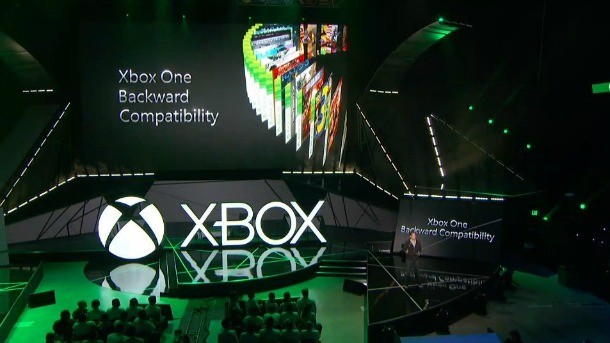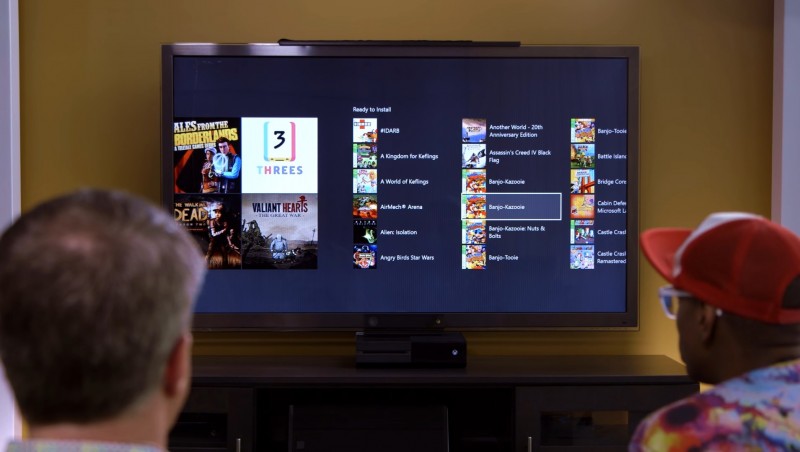Opinion – Sony And Nintendo Should Follow Microsoft’s Backward-Compatibility Example

This article was originally published May 9, 2017.
At E3 2015, Microsoft revealed backward compatibility would be a big push for Xbox One going forward. The company promised around 100 games available as the functionality launched that fall, with many more to come on a regular basis. The promise seemed lofty, maybe even improbable, at the time. We poked some fun at the marketing, but at the end of the day, Microsoft has not only delivered on its promise, it has exceeded all expectations by adding new titles at a blistering pace.
Unlike its competition from Sony and Nintendo, Microsoft's backward compatibility is built into the system's operating system itself thanks to Microsoft's Universal Windows Platform. That means not only are games you already own on Xbox 360 completely free to play on Xbox One once they are added to the backward-compatibility list, but they automatically appear in your library alongside your Xbox One games if you own them digitally. This simplified approach to backward compatibility is a breath of fresh air. The idea that "it just works" harkens back to what makes consoles so attractive in the first place.
This is a far cry from PlayStation 4, which has no native backward compatibility. Instead, if you want to play PS3 games on your PS4, you need to load up PlayStation Now and purchase the ability to stream that game from Now's servers. For games from PlayStation 2, you need to repurchase the download license altogether - if the game you want is available in the store.
Nintendo has traditionally done a good job with backward compatibility with the Wii playing GameCube games, Wii U playing Wii games, and its handhelds playing the games of the prior generation the vast majority of the time, but Virtual Console has been a strange case. Taking your Wii Virtual Console games to Wii U incurred a small upgrade fee for each title, but the Switch's Virtual Console future is unknown at this time, and on the digital front, the 3DS charges full price for the same game, even if you already own it on the connected Nintendo account.
In addition, with Microsoft's Xbox Live Games with Gold program giving subscribers bonus game downloads at no additional cost, each player's personal backward compatible library steadily grows. That's because Microsoft has intentionally targeted backward-compatible titles when it selects which Xbox 360 titles are offered in the program. This is a fantastic way to not only offer players a second chance to play beloved titles, but also a way to introduce hidden gems and niche titles from last generation to a broader player base. I also love how when Microsoft holds a digital sale, I can browse Xbox 360 titles included in the promotion and immediately add them to my games library on Xbox One.
This comes up with my purchase strategy as well. Microsoft has made it clear that a major goal of its Universal Windows Platform is both backward and forward compatibility – much like we see in PC gaming. Head of Xbox Phil Spencer has specifically addressed this notion. "Basically, every time a new generation shift happens in console gaming, it's had a tendency to invalidate every game you've ever purchased and require a whole new purchase motion, which isn't great for gamers," he said at Xbox's Spring Showcase in 2016.

When I asked Spencer directly about how the Universal Windows Platform supports backward and forward compatibility at that same event, he doubled down. "I think it's as much forward compatibility on what's to come as it is backward compatibility on what's been built," he said. "When I'm building something today, I know that it will be playable 10 years from now because I'm building on a platform that a company like Microsoft is out there supporting." With that in mind, I feel as though I'm being more proactive in future-proofing (if such a thing exists) my games library.
That peace of mind has guided my purchase decision on multiple occasions. When I look at how Sony has handled backward compatibility over the last 15 years, I'm less confident that a game I buy today will be playable on a system I still have connected in a decade. This doesn't prevent me from buying games on my PlayStation 4, but it has swayed me on a few occasions when I'm deciding which console to pick up a multiplatform game for.
With both PlayStation and Nintendo, I've held off on buying games from older systems, as I've either packed away or gotten rid of my old system. When Sony has one of its awesome Flash Sales on PlayStation Network, I only pay attention to what's on offer for PS4 and maybe Vita; I completely ignore the PS3 section, since I don't even own one anymore. Compare that to how I react to a sale on Xbox Live, where I'm scouring both the Xbox One and Xbox 360 sections to see what I want to pick up.
Microsoft hasn't just maintained the backward-compatibility functionality either; it has continually updated the list with new titles each week. Xbox 360 had a similar ability to play original Xbox titles from a list of enabled games. When the updates stopped coming for that, Microsoft had enabled more than 450 original Xbox titles to work on the 360, which accounts for more than half of the library. Microsoft has obviously seen value in this, as it is already approaching that mark in the first 18 months of Xbox One's backward-compatibility functionality. Regardless of the fact that the Xbox 360 library was much larger than that of the original Xbox, it shows a commendable commitment to multigenerational functionality for your games.
Publisher strategy also comes into play, as they have the ultimate say of when a title comes into the feature. For example, some publishers add prior hits to the backward compatibility list as a new title is announced, or even include those titles as a pre-order bonus.
Though I was initially skeptical of Microsoft's commitment to backward compatibility, the company has blown me away with its support. Each week, I find more games that I either missed on 360 or wish to revisit – a scenario I'm sure I share with others, which has almost certainly driven revenue for Microsoft to make this initiative worthwhile from their business perspective. Even though new games are always paramount, I love the cohesive nature of having a robust library that spans multiple generations on the most recent hardware, and that's what Microsoft comes the closest to out of the three major platform holders.









